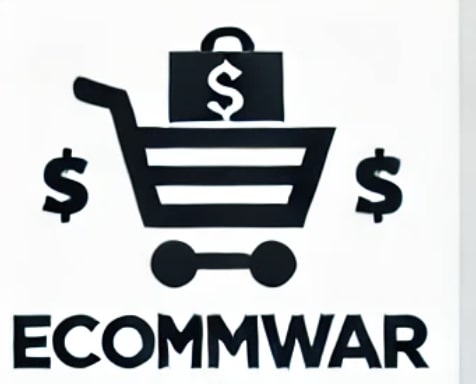Even in the face of competing platforms like Amazon, Shopify, and the countless others that have emerged, eBay has managed to stand resilient. Founded in 1995, eBay was one of the first retailers to start selling online, assisting in establishing the peer-to-peer marketplace model which has gained immense traction. The online retailing industry comprises of many competing names, but eBay seems to be the most distinguished.
For individual sellers and small to midsized businesses, eBay often proves to be strategically beneficial at a time when countless other alternatives exist. Claiming its place as a legacy platform, eBay has maintained its advantage of scalability, flexiblity, and buyer trust, along with fostering a community that seems appealing for numerous sellers who do not prefer the daunting nature of building an audience from scratch.
Built-In Customers From Around the World
eBay’s customer base is one of its major competitive advantages. In early 2025, the site boasts more than 132 million active buyers around the world. Additionally, it operates in over 190 markets and processes transactions in numerous currencies, making it one of the most internationally accessible platforms in the e-commerce sector. Such a worldwide presence is particularly important for small sellers who do not possess the infrastructure needed to tap into international markets themselves.
In contrast, sellers on Amazon’s marketplace face restrictions that are more often tied to geographical region seller registration, fulfillment, and inventory yardsticks. Despite paying more attention to total traffic, which eclipses 2.7 billion visits per month in the US alone, Amazon comes off as more restrictive when it comes to listing, servicing, pricing, and selling, dealing with customers. Sellers focused on autonomy or dominant in pre-owned, refurbished, vintage, and collectible goods without rigid guidelines have greater flexibility on eBay.
Lower Barriers to Entry
eBay is an easy platform to access, allowing any user to create a seller account and list items for sale almost instantly. Unlike other platforms like Shopify and Amazon that charge monthly fees or professional seller fees before sales are made, eBay allows sellers to list up to 250 items a month for free. Sellers can also choose to either auction items or sell them at a fixed price, set by the seller, making eBay’s model more appealing than Shopify’s subscription model.
This ease of access has drawn a variety of new sellers to the platform. eBay experienced substantial growth during the pandemic, with many users seeking flexible and reliable income streams during economic uncertainty.
A Longstanding Market for Unique Goods and Used Items
Unlike eBay which enables selling second-hand out-of-fashion products like clothes and watches, Amazon focuses primarily on selling new and mass produced goods. According to a 2023 report on eBay, the online auctioning platform for second-hand goods, over 40% of the goods sold in 2023 were pre-owned, allowing the seller to earn profit while helping reduce waste. This shows a growing second-hand economy and increased attention from consumers towards sustainable commerce As opposed to eBay where consumers can sell used or vintage items, refurbished and broken goods have little to no marketplace available for resellers.
With overarching changes in the economy, growing inflation and increased awareness for the need to protect the environment has made consumers more accepting, shoppers looking to buy used or revised products, especially electronics, clothes and luxury brand items. For sellers of used and restored items, eBay provides the ideal audience who might not be able to buy unused goods, making items marked new and in box highly priced on the platform seem attractive.
Market Dynamics in eBay and Amazon
Sellers are suppressed from competing in Amazon and their eligibility for the Buy Box is determined algorithmically. eBay offers its sellers more transparency as there algorithms do not govern suppressions and eligibility for the BuyBox. Instead, eBay comprises several seller metrics including price, condition, rating, and shipping that can be controlled by the sellers themselves. Small merchants can now compete against larger retailers, given that the former can more adeptly manage customer relations.
eBay’s commission may not be cheaper, but it is more predictable. Depending on the category, Final Value Fees is set between 10 and 12.9% with specific rules about buyer promotions, returns, and protections. Unlike eBay, Amazon referral fees, charging for fulfilling orders, and penalties for storage tickets are complex to countless sellers who wish to predict their spending dollars worth on the platform.
Seller Autonomy and Branding
eBay may not come to mind as a branding platform, but unlike most competitors, it gives sellers greater leeway to establish a distinctive seller’s identity. Visibility of seller names enables customization of storefronts, and communications can be tailored to strengthen branding. Unlike Amazon, where the emphasis is placed on the product, eBay, along with other sellers, offers some degree of brand visibility.
For smaller and niche brands, brand autonomy can serve as an important value proposition. They can build customer loyalty, retention, and foster independence while avoiding the costs associated with developing a web store.
The Case For eBay in a Fragmented Marketplace
With the ongoing fragmentation of global e-commerce into social platforms, mobile marketplaces, and direct-to-consumer sites, eBay has maintained relevance as a hybrid marketplace (auction and fixed-price): eBay offers flexibility without the constraints of Amazon, offering scale, while providing less control than Shopify. Additionally, eBay offers personalization without the coldness of newer apps.
In a busy digital economy where exploration is usually motivated by sponsored advertisement and completion is controlled by a third party logistics (3PL) provider, eBay remains refreshingly simple. Sellers will continue to list their goods and buyers will continue to search for their goods. Transactions are moderated, yet there is no deception. And for many businesses, that is not only well known, but rather, precious.

